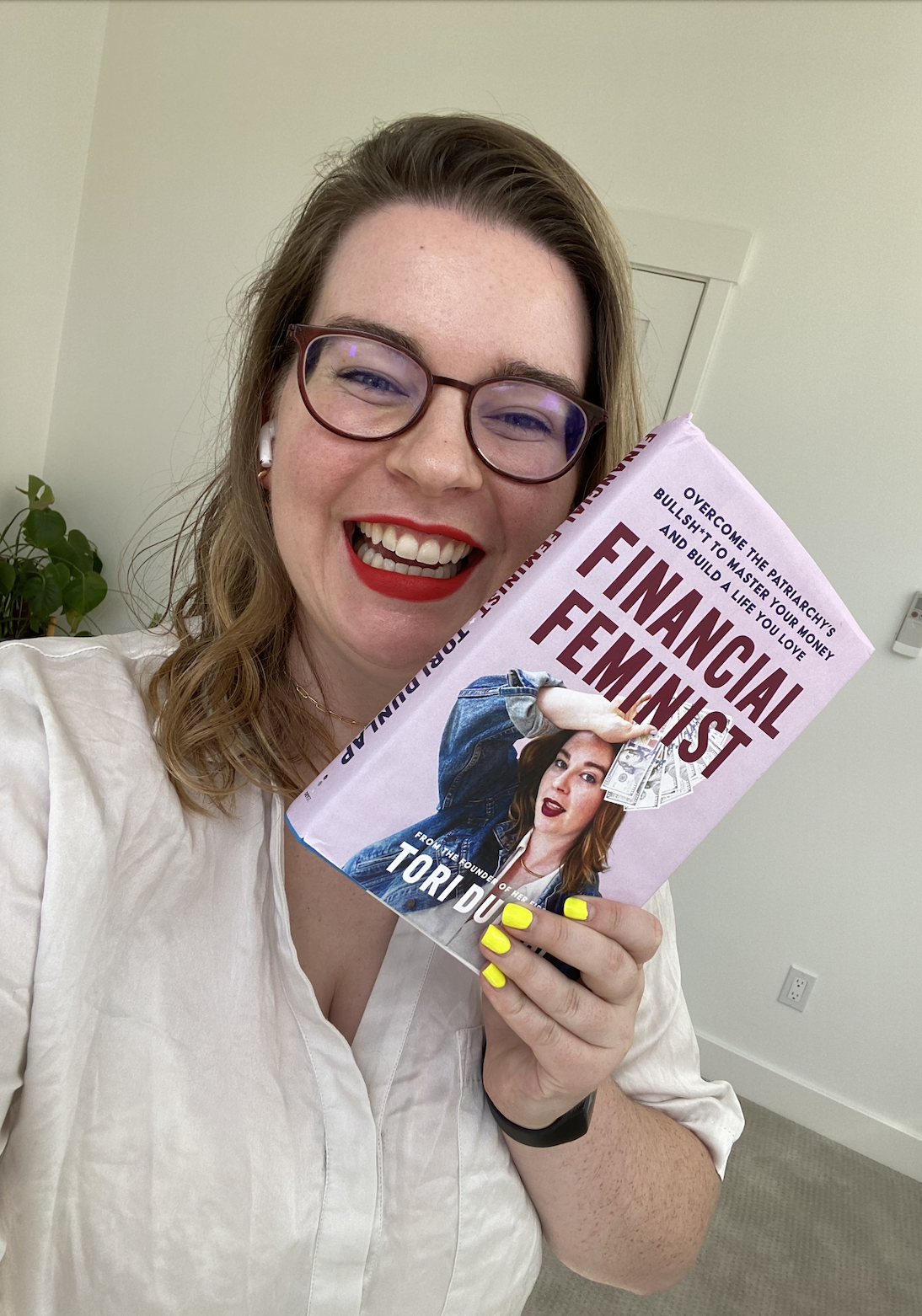The following article may contain affiliate links or sponsored content. This doesn’t cost you anything, and shopping or using our affiliate partners is a way to support our mission. I will never work with a brand or showcase a product that I don’t personally use or believe in.
Whether you’ve been on your financial journey for awhile or just starting out, you probably have your sights set on exciting goals and resolutions for the year – many of which may include certain financial goals, milestones, or accomplishments.
Personally, I love a good money goal as much as the next gal, especially when it comes to kickstarting your financial wellness journey. But, I also know that these goals are only as strong as your mindset – without the proper mindset and beliefs, sticking to our goals and reaching them will be really, really difficult (if not altogether impossible).
Sure, saying that I’m going to get 8 hours of sleep every night sounds great – but chances are that, in the back of our minds, we’re saying “well…except of course to stay up late to snag Taylor Swift tickets…or watch an entire season of Love is Blind…or to stalk my Bumble date on Instagram.” …You get where I’m going with this.
One of the ways that we sabotage our goal mindset is by harboring beliefs that do not serve us or are not rooted in our best interest. Take for example that resolution to sleep 8 hours a night – while this is a great goal, if I believe I’m doomed to fail thanks to a late-night Netflix habit, then I’m already mentally preparing to not reach this goal.
The same goes for our financial goals – if you set a money goal but are maintaining beliefs that do not align with that goal, then you’re unconsciously making your goal much harder to reach and much more likely for failure.
It’s not your fault if you have financial beliefs that are limiting you and your money mindset – after all, as women living in a patriarchal society, we are inundated daily with patriarchal messages that fuel these beliefs: women are frivolous spenders, women don’t work as hard as men, women don’t make good investors…the list goes on and on.
But I want to remind you that these messages are myths – myths created by the patriarchy to keep us down and limit our financial progress and freedom. Liberating ourselves from these beliefs can be challenging, but the sooner we do it, the sooner we will increase our financial confidence, reach our money goals, and increase the likelihood that other women will be able to do the same.
This is at the heart of financial feminism and something I discuss at length in my book, Financial Feminist, and I’m so excited to share a HFK blog-exclusive excerpt of the book with you all today as we explore the idea of dispelling patriarchal money beliefs in order to improve your money mindset and reach your financial goals, both in the upcoming months and for decades to come!
Financial Feminist is now available everywhere you buy books!
The old adage “Money can’t buy you happiness” is bullshit. The general sentiment may be true: buying things is not where you should turn for contentment. But at its core, the statement is false. It’s meant to keep you powerless, unpaid, overworked, and financially unstable.
Anxiety regarding money-related issues has been at or near the top of the American Psychological Association’s Stress in America survey every year since it began in 2007. Overall in 2022, two-thirds of all Americans reported feeling stressed about money. But among men and women between the ages of eighteen and forty-three, financial worries affected four in five poll respondents. (That’s 82 percent of those age eighteen through twenty-five, and 81 percent of those age twenty-six through forty-three.)
When you’re poor or financially stressed, the words “money can’t buy you happiness” is the most gaslight-y thing someone can say. Just as our finances are affected by our emotions, so are our emotions affected by our finances. And these emotions can stem from the kind of poverty where you don’t know where your next meal is coming from, from being in a financially abusive relationship, from carrying crippling student debt. Being broke and financially unstable fucking sucks.
Studies about our brains “on poverty” show that lack of resources negatively affects our cognition, stress levels, and decisions-making. Recently, a landmark study even suggested that giving poor mothers a cash stipend during the first year of their babies’ lives literally improves their children’s cognitive development. And we know from research that higher incomes are correlated with high well-being (there’s debate around the threshold this stops, but the point still stands).
So, when someone says, “Well, money can’t buy you happiness,” you think, Umm, wanna bet motherfucker?! Because not only does money provide you with your basic human needs such as safety and healthy food, but also it gives you the ability to rest, to nourish your body and mind, and to leave bad situations. Money can buy stability and choice, and that is happiness.
Inherently, money is not valuable. I don’t want a photo of Ben Franklin on a stack of some government-issued paper. I want choices. I want what money can buy me. For millions of American women, the dream of wealth is a dream of freedom, because it’s money that provides us with options when our government and society fail to.
Freedom from a toxic relationship or client or situation (I can’t tell you how many of my clients have told me that this is their primary goal.) Freedom to move into a bigger apartment so that each child in the family can have their own room. Freedom to spend more time with your aging parents. Freedom to start the business you’ve always dreamed of. Freedom to travel the country in a souped-up school bus. Or, like one of my first coaching clients, the freedom to waltz into a Whole Foods and buy the fanciest cheese she could find for her weekly charcuterie nights – without thinking twice.
“Money can’t buy you happiness” is what the patriarchy says when you show interest in becoming financially educated, when you start gaining power. It’s meant to keep you playing financially small: accepting the first offer without negotiating your pay, allowing your male partner to invest for you, not getting a better-paying job for fear of being labeled a “job hopper.” But, really, the patriarchy is happy when you conform, when it can control you – so it keeps you in homeostasis, playing small.
The patriarchy’s worst nightmare is you being uncontrollable. Its worst nightmare is that these narratives no longer affect you. Its worst nightmare is you standing in your power, advocating for yourself and others (I’ve always loved being the patriarchy’s worst nightmare.)
– An excerpt from Financial Feminist, Chapter 1
Are you ready to become the patriarchy’s worst nightmare? Consider Financial Feminist your personal handbook to getting your financial shit together while fighting the patriarchy.

I get asked all the time: “where do I start?!” Take our FREE quiz for step-by-step guidance and actionable resources to meet you at each stage of your unique financial journey.



